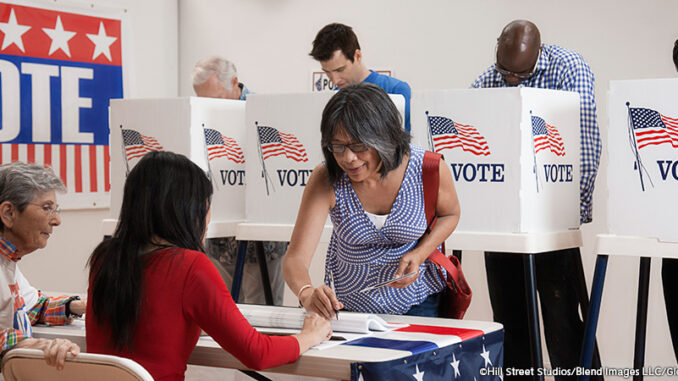
Ferguson: One Year Later
August 9 marked the one-year anniversary of the shooting death of an unarmed black teenager by a white police officer in Ferguson, Missouri (a suburb of St. Louis). The incident sparked a riot in that city that lasted several days and flared race relations across the United States. To mark the occasion, several hundred people recently gathered at the spot where Michael Brown, 18, was fatally shot. Brown’s father, Michael Sr. made brief remarks. There was a four-and-a-half-minute silence, followed by a march to a local church.
The initial incident in Ferguson set into motion a movement called “Black Lives Matter.” It aims to draw attention to the ongoing troubled relationship between black communities and law enforcement. The U.S. Justice Department issued a report in March revealing a history of racial discrimination and excessive force in Ferguson, which led to a number of police resignations. But police officers around the country are finding themselves at odds with minority communities. The Obama administration has expressed the goal of “exerting greater control over local police departments.”
Dig Deeper During the anniversary gathering in Ferguson, another 18-year-old, Tyrone Harris, was shot (but not killed) in a shoot out with police. Authorities responded by declaring a state of emergency. Keep watching for updates on the situation.
Court Rules in Texas Voter ID Law
Back in the fall, both btw and Election Central brought you news of an ongoing federal court battle over a controversial voter ID law in Texas. Enacted in 2011, Senate Bill 14 required voters to present one of seven forms of identification in order to vote. It was considered one of the strictest rules on voter registration in the country. Last year, a legal team went before the Fifth Circuit Court of Appeals to argue that the law violates the 1965 Voting Rights Act. Earlier this month, a unanimous panel of judges ruled in their favor, overturning SB14.
In 2016, 14 states are set to implement laws that will critics say will restrict ballot access. Much of the opposition to the law is in the types of identification that can be used for voting. In Texas, there had been only seven, while other states (like Kansas) accepted 12. In a study conducted by the University of Houston, 5.8 percent of registered voters who didn’t vote in the 2014 cited the photo ID requirement as the main reason for not doing so; 12.8 percent cited the requirement as one of the reasons.
Dig Deeper Do some research and identify one of the 14 states due to implement voter ID laws. Follow at lest two news stories as to the status of the legal case as well as the public reaction.
5-Star Healthcare?
Yelp is a popular crowd-sourced review website. ProPublica is a nonprofit investigative news organization. The two organizations recently announced that they have entered into a partnership. The effort is part of Yelp’s initiative to ensure the statistics gathered on the site are as informed and as unbiased as possible. In addition to reviews from consumers, profiles on providers will include research compiled by ProPublica. Statistics will include wait-time, noise level, patient-physician communication, as well as compliance information on nursing homes and hospitals.
While some feel the pairing of a social media site and a traditional news organization is unusual, others believe the timing is right. According to a survey conducted by Healthcare Consumer Trends, 77 percent of consumers are now researching healthcare providers online, with 45 percent scanning reviews before booking an appointment. Yelps founders Russel Simmons and Jeremy Stoppleman are hopeful that the new data gathered as a result of the partnership with ProPublica will add a level of integrity to their service.
What Do You Think? How much do you depend on reviews online to influence your decisions in choosing a product or service? Do you think it’s fair to use the same rating system for healthcare professionals? Why or why not?
History Hip-Hops its Way to Broadway

Over the past decade, Broadway has been criticized for not taking many risks. But, among the sea of revivals and shows based on movies, television shows and Disney toys, is a new musical that is getting all kinds of buzz for its bold and fresh approach. The show is “Hamilton,” a hip-hop musical about the rise and fall of our country’s first Secretary of the Treasury, Alexander Hamilton. As is custom, it premiered “Off Broadway” where creator Lin-Manuel Miranda and his team showcased, developed and re-wrote it before moving to the Rogers Theater on Broadway.
The challenge to the creators was to take an old story about our Founding Fathers and making it relevant for a modern audience. They succeed by focusing on a theme that we see in every new generation of visionaries—restless and ambitious young people yearning to break free of retrains of the past and forge a new future. The musical score—made up of hip-hop, rap and R&B ballads—as well as a cast that is largely African American and Hispanic, is appealing to young audiences. But it is the quality of the songs and story that has made critics take notice.
